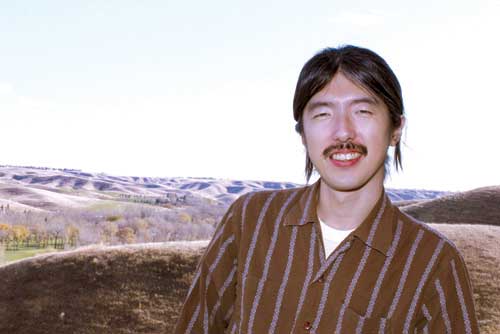There are many barriers to running a successful exchange program, challenges far beyond the obvious cultural differences and language issues that exist between two nations. It is even more impressive then to recognize the 30-year relationship between Japan's Hokkai Gakuen University and the University of Lethbridge, one that has seen participation by both faculty and students.
"It is an important achievement for a university to have such a long-standing partnership that has affected so many students, faculty and staff in a positive manner," says University of Lethbridge president Dr. Michael Mahon. "The U of L should be proud of this friendship and the goodwill it has promoted between two cultures and two nations, much less two universities."
The first faculty exchange between the two universities took place in 1981, followed five years later by the start of a student exchange program. Designed to promote cross-cultural understanding between the two nations, the exchange relationship has succeeded on many levels.
Trish Jackson, director of the International Centre for Students, says each exchange offers a unique experience for those taking part.
"We have faculty members coming from all different kinds of backgrounds at Hokkai Gakuen University," she says. "They come here for one semester to teach common content as part of a Japanese Culture class. Likewise, we will send faculty members from all of our departments to teach their students about Canadian culture. You get a different flavour every time you have a different faculty member because they have their own way of looking at their culture through their own discipline and background."
This semester, Dr. Osamu Seto, a physicist, is the Hokkai Gakuen visiting professor. At 36 years old, single, well traveled internationally and at ease with the English language, he's brought an entirely new perspective to the exchange. He's wont to rent a car and take a day trip to Waterton and has no problem being thrust into new situations, such as an interview or being recognized at Convocation for the exchange's 30-year anniversary.

"I did not know that I was going to have to go on stage," laughs Seto. His intrepid spirit led him to Lethbridge when his department supervisor at Hokkai Gakuen said he was looking for exchange candidates.
"I didn't have anything stopping me so I decided to do it," he says. "It has been very enjoyable."
The student aspect of the relationship involves one student per year coming to the U of L and taking a semester of English for Academic Purposes, followed by one semester of undergraduate studies. Every two years, a group of 15 to 20 students comes for a summer program, the focus being to learn English. A group of business students also makes the trip every few years, studying English but with specific business related content. Likewise, the U of L sends a group of 15-20 students to Hokkai Gakuen every two years for a summer cultural program.
Dr. Ed Jurkowski of the Faculty of Fine Arts music department took part in one such exchange.
"There were obviously many experiences and memories that the students will forever carry with them," he says in a commemorative book celebrating the exchange. "However, the most far-reaching were the homestay opportunities the students had. Each student spoke at length about how much these relationships allowed them to understand Japanese culture on a far deeper level than as a simple observer."
It is those observations that keep the relationship between the University of Lethbridge and Hokkai Gakuen alive and thriving, and speak to the value of the program.
"This is the type of interaction that encourages our students to become global citizens," concludes Mahon.
This story first appeared in the November issue of the Legend. For a look at the Legend in a flipbook format, follow this link.
